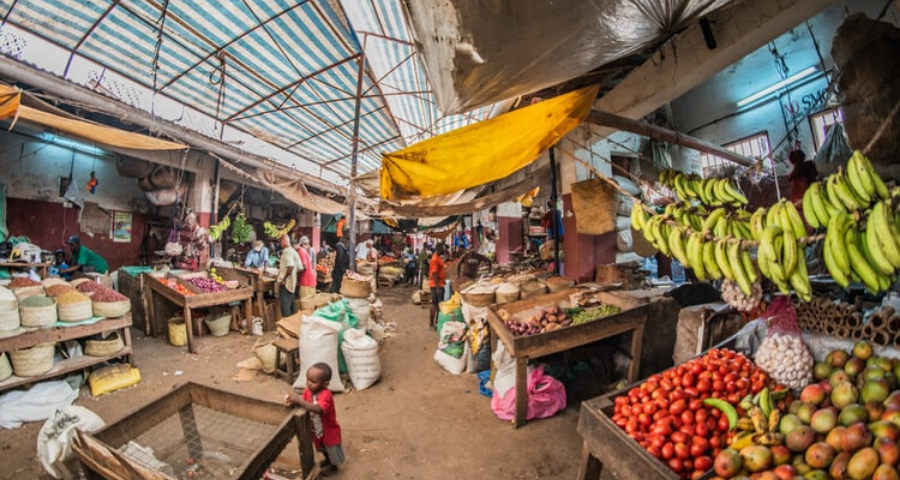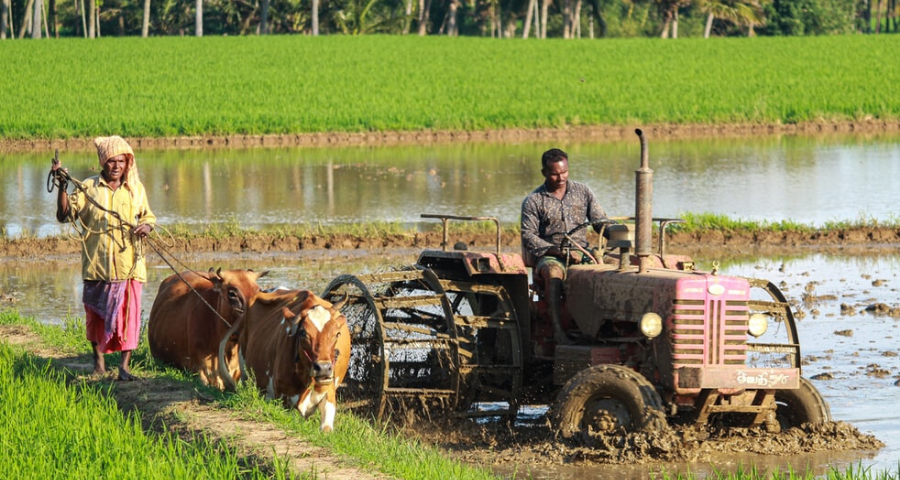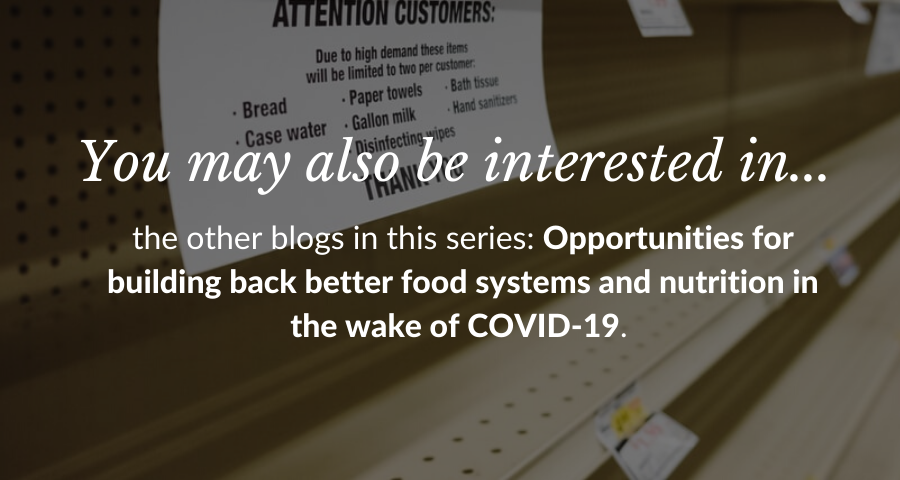During the first weeks of lockdowns across the world, media coverage of empty supermarket shelves in the West created an impression of food shortages. Despite this, and unlike previous food crises, the world is not in short supply of food. Protectionist measures will only hurt the most vulnerable.
As the impact of the coronavirus pandemic on the global economy deepens, I want to add the voice of the EBRD to those who caution against trade restrictions of any sort, especially on food exports, at a time when food stocks are, in fact, plentiful.
It is vital for the international community to keep trade flowing, even in the face of uncertainty, in order to support both exporters and the most vulnerable importers, such as in sub-Saharan Africa, for the benefit of global, sustainable growth.
As an early response to Covid-19, some governments in the EBRD regions, including the large grain exporters, took steps to limit exports of agricultural commodities. These measures, a reaction to unprecedented circumstances, have mostly been temporary and designed to address domestic concerns about food shortages and price rises.
Some countries have reversed their decisions, but the danger of further export restrictions based on popular fears rather than facts is still looming, which risks disrupting the global food markets and free trade.
The last two food crises took place in 2007-08 and 2010-11, when there was a shortage of food globally and commodity prices were high. Then, too, some governments introduced trade restrictions which reinforced price surges and, in a chain reaction, led to further restrictive trade measures. In the EBRD regions, reduced grain exports from eastern Europe contributed to significant food insecurity in countries in North Africa, where the Arab Spring subsequently took place (following which the EBRD started investing in some of these economies, namely Egypt, Morocco and Tunisia).
This time, however, the situation really is different.

There is no danger of food shortages in any of the countries that are currently entertaining such ideas. In fact, some exporters have large amounts of agricultural commodities they need to sell before the next harvest. Large traditional importers have also reported they have stocks necessary to tide them over until mid-summer even in the case of export bans, according to the UN’s Food and Agriculture Organization (FAO).
Export bans would represent another massive blow to international trade, which has already been hit by logistics disruptions due to lockdowns. The World Trade Organization (WTO) predicts a fall in world trade of between 13 and 32 per cent in 2020, subject to the depth and duration of the crisis.
A comparison reveals the seriousness of the situation. The lower estimate would be a bigger decline of global trade than during the 2008-09 financial crisis, when it fell 12.5 per cent. The larger estimate, a drop of almost a third in one year, would match the fall suffered during the Great Depression of the 1930s, but even then it was spread over the course of three years.
In 2008, when the financial crisis shook the world, leaders across the G20 and EU responded decisively. They coordinated and implemented wide-ranging measures to support and reform financial institutions, which were at the core of the crisis.
The financial uncertainty still had a significant impact, which was also exemplified by a series of trade restrictions and stockpiling of food, leading to global market distortions. At the time, the G20 explicitly committed to keeping trade flowing, and eventually for many emerging markets, economic recovery was aided by increased food exports.
In 2011 the G20 also established a platform – the Agricultural Market Information System (AMIS) – to support policy coordination and enhance market transparency among leading exporting and importing countries of agricultural commodities.
We at the EBRD used our knowledge and strong partnership with the FAO to facilitate the dialogue between governments and the private sector to reduce and remove unnecessary export bans. This increased market transparency and resulted in constructive solutions and the growth of agribusiness sectors in, for example, Ukraine, which became a leading exporter of food commodities. So international cooperation and private-public dialogue does work.
This time, international action around food security has been faster to mobilise at the onset of the Covid-19 pandemic, with IFIs and multilateral organisations immediately calling on governments to keep food trade flowing.

The message was reinforced by the call from G20 Agriculture Ministers on 21 April to strengthen global coordination to ensure food security. And yet, we still see some countries contemplating export restrictions.
More needs to be done to protect the most vulnerable countries – many of which are in Africa, which is also the most affected continent by climate change-related droughts. Food security is rooted in the second Sustainable Development Goal, “No Hunger”. We will not achieve the SDGs globally without strong progress in Africa.
So this is not the time to reverse engines on free trade. Faced with the most serious disruption since the 1930s, the world simply cannot afford to shut down a growth engine like the global flow of goods and services, particularly when people’s most essential good – food – depends on it.
The world needs the creativity and dynamism of the private sector to support the recovery from this crisis, for which governments should provide the right conditions and regulations. For that, we should implement lessons learned from 2008 and 2011: strong international cooperation and public-private dialogue.
As the coronavirus pandemic spreads across the world, the EBRD announced that its planned investment volume of up to €21 billion over the next two years would support crisis response and economic recovery in its 38 markets on three continents.
The Bank has provided record amounts of finance to facilitate trade, alongside emergency liquidity support to our clients, and increased financing for private sector SMEs and corporates. These clients include those in the agribusiness sector, which the EBRD sees as one of the priority sectors for our Covid-19 response. Over the years, the EBRD has invested €12.2 billion in agribusiness projects, and we stand ready now to do even more.
Sir Suma Chakrabarti is President of the European Bank for Reconstruction and Development (EBRD). The EBRD's Board of Governors re-elected Sir Suma as President of the Bank for a second four-year term in 2016. He began his first term in 2012, replacing Thomas Mirow and becoming the first EBRD President from the United Kingdom. Sir Suma has extensive experience in international development economics and policy-making, as well as in designing and implementing wider public service reform. Before arriving at the EBRD, he held the position of Permanent Secretary at the British Ministry of Justice and was its most senior civil servant. To learn more visit: President of the EBRD.

